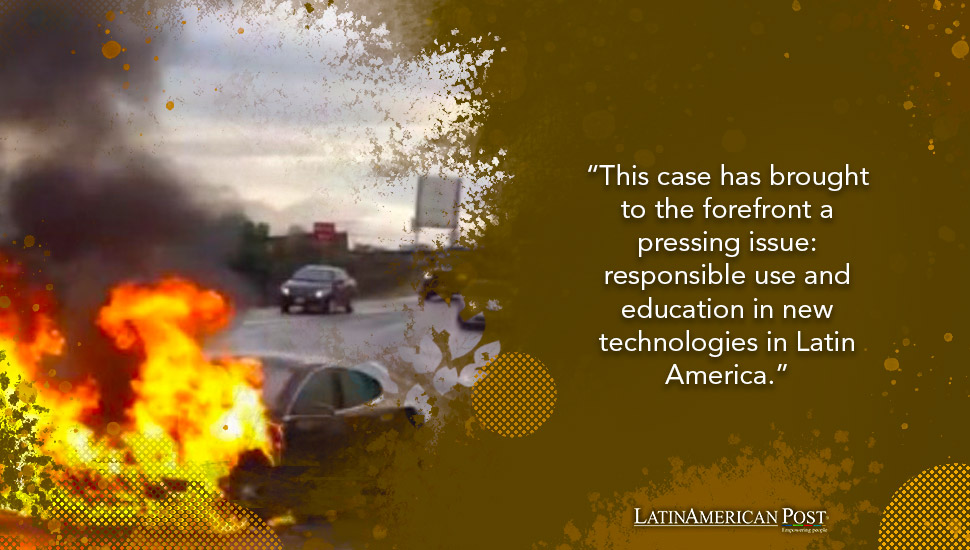Tesla Fire Leads to Calls for Responsible Use and Education of New Technologies in Latin America

The recent fire in Tijuana caused by an illegally connected Tesla underscores the urgent need for responsible use and education regarding new technologies in Latin America.
The recent fire in Tijuana, ignited by an illegally connected Tesla vehicle, has thrust a pressing issue into the spotlight: the responsible use and education of new technologies in Latin America. As technological advancements continue to infiltrate our daily lives, the time to not only embrace these innovations but also to understand and manage their associated risks is now.
The Incident and Its Implications
The fire, which took place in the Playas neighborhood of Tijuana, was sparked by an unauthorized connection of a Tesla to the public power supply. This incident drew significant attention due to the unusual circumstances, with the electric vehicle being connected using a ‘diablito,’ a colloquial term in Mexico for illegal electrical connections. Such practices are dangerous and reflect a broader issue of insufficient knowledge and resources to manage new technologies safely.
Electric vehicles, particularly Teslas, pose unique challenges for emergency responders due to their high energy storage and the specific methods required to extinguish fires involving them. Arturo Sánchez, the firefighter coordinator who responded to the scene, emphasized that while electric vehicles are not standard in Tijuana, the fire department had been preparing for such incidents. This preparation underscores the importance of anticipating and training for the risks associated with new technologies.
The Need for Comprehensive Education
The proactive approach of the Tijuana Fire Department in training and preparedness is commendable. However, it also underscores a significant gap: the general public’s need for more education on the safe use of new technologies. The illegal connection that caused the fire was not just a fluke but a consequence of inadequate awareness and access to proper charging infrastructure. Comprehensive education is the key to preventing such incidents.
To prevent such incidents, it is crucial to invest in comprehensive education programs that inform the public about the safe and responsible use of new technologies. This includes understanding the specific requirements and risks of electric vehicles and the broader implications of integrating advanced technologies into daily life.
Advocating for Responsible Use
Embracing new technologies in Latin America must be accompanied by a strong emphasis on responsible use. Governments, educational institutions, and private companies must unite to develop and implement policies that ensure the safe adoption of these technologies. This involves creating robust infrastructure, such as accessible and authorized charging stations for electric vehicles, and enforcing regulations that prevent dangerous practices like illegal electrical connections.
Moreover, public awareness campaigns should be launched to educate citizens about the potential hazards of misusing new technologies. These campaigns can provide practical information on safety measures, legal requirements, and the benefits of adhering to proper usage guidelines. By fostering a culture of responsibility and awareness, we can mitigate the risks associated with technological advancements and ensure a safer environment for all.
The Tijuana incident is a stark reminder of the need for increased vigilance and education regarding new technologies. As Latin America continues integrating these advancements, we must prioritize safety and responsibility. This involves preparing emergency responders and empowering the public with the knowledge and resources needed to navigate the complexities of modern technology.
Also read: Strengthening Ties: U.S.-Latin America Integration for Mutual Benefit
In conclusion, the responsible use and education of new technologies are critical to ensuring their safe and beneficial social integration. The recent fire in Tijuana calls for all stakeholders to work together to promote a safer and more informed approach to technological adoption in Latin America. By addressing these challenges head-on, we can harness the full potential of new technologies while safeguarding our communities from their inherent risks.





